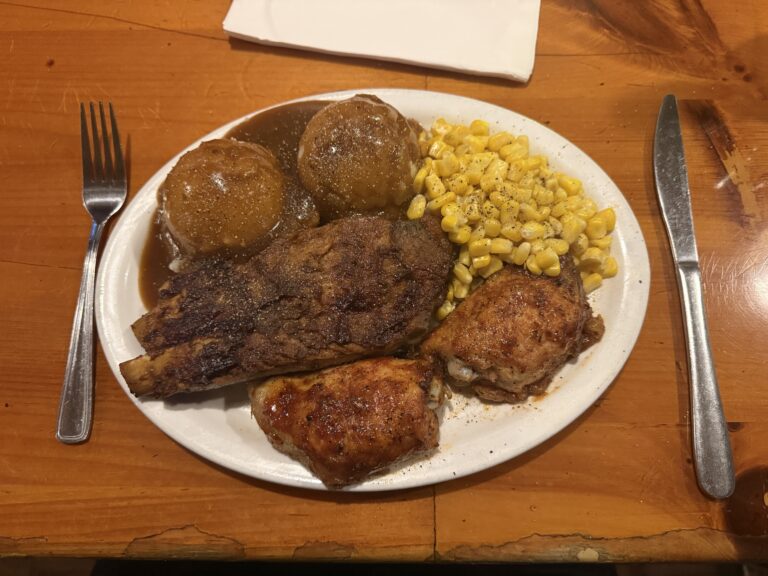
As the weather warms and Canadians thaw, a trip in the car (or bike) is a common way to get out of the city. Or maybe you need to be on the road and want optimal safety and comfort.
Preparing for unexpected situations while on the road can make all the difference in a safe and smooth journey. A well-equipped preparedness bag can help you handle emergencies, stay comfortable during long trips, and be ready for anything that comes your way. Here’s a step-by-step guide on how to build your preparedness bag for car travel.
Choose the Right Bag
Start by selecting a durable, water-resistant bag that fits easily in your car trunk or back seat. A backpack, duffel bag, or small suitcase can work well. Ensure it has multiple compartments to keep items organized.
Emergency Essentials
- First Aid Kit: Include bandages, gauze pads, antiseptic wipes, adhesive tape, pain relievers, and any personal medications.
- Emergency Blanket: A lightweight, compact emergency blanket can provide warmth in case of a breakdown or accident.
- Flashlight and Batteries: A reliable flashlight or headlamp is essential for nighttime emergencies. Pack extra batteries or a rechargeable flashlight.
- Multi-tool or Knife: A versatile tool can help with minor repairs, cutting, and other tasks.
- Whistle: A whistle can be crucial for attracting attention if you’re in distress.
- Cell Phone and Charging Cables: keep in touch.
- Note: if you are lost or your car breaks down remember – if you have a signal, leave your location and other information on your outgoing answering message. If your phone dies a message is left for potential rescuers.
Safety and Survival Gear
- Jumper Cables: Be prepared for a dead battery.
- Tire Pressure Gauge: Check tire pressure regularly and inflate tires to the correct level.
- Tire Repair Kit: Include a tire repair kit with plugs and a portable air compressor.
- Reflective Vest: Stay visible during roadside emergencies or repairs.
- Duct Tape: A roll of duct tape can temporarily fix many car issues.
Comfort and Convenience
- Water and Snacks: Pack non-perishable snacks like energy bars and nuts, along with bottled water.
- Clothing: Pack extra layers of clothing, including a jacket and hat, in case of cold weather.
- Sunscreen and Bug Repellent: Be prepared for outdoor activities or long waits with these essentials.
- Hand Sanitizer, Toilet Paper and Wet Wipes or Paper Towels: Stay clean on the go.
- Garbage Bags: to keep the car clean.
Additional Items
- Paper Map: In areas with poor reception, a paper map can be a lifesaver.
- Portable or Solar Phone Charger: Ensure your phone stays charged for communication in emergencies.
- Emergency Cash: Keep some cash in small denominations for tolls, gas, or unexpected expenses.
- Personal Items: Include items like a small notebook and pen, sunglasses, and any other personal necessities.
- Identification and emergency numbers: passports, licenses, health cards.
- Medication: Include ample supply of personal meds and meds for pain, tummy problems and allergies.
Maintenance and Repair Tools
- Spare Tire and Jack: Ensure your car has a spare tire in good condition and a functional jack.
- Tire Iron and Lug Wrench: These tools are necessary for changing a tire.
- Basic Toolkit: Include screwdrivers, pliers, and adjustable wrenches for minor repairs.
- Tire Sealant: A can of tire sealant can temporarily repair a flat tire.
Seasonal Considerations
- Winter Gear: In colder climates, add items like a snow shovel, ice scraper, hand warmers and extra blankets.
- Summer Gear: For hot weather, include sunscreen, a hat, and extra water.
Travelling with children – additional items
- If you are travelling with children, it’s important to add items to your preparedness bag that cater to their needs and safety. Here are some additional items you may consider including:
- Baby Supplies: If you have an infant or toddler, pack diapers, wipes, baby food, formula, pacifier and any other necessary supplies.
- Child-Friendly Snacks: Pack snacks that are easy for children to eat and won’t create a mess in the car.
- Entertainment: Include books, toys, games, or tablets loaded with games and movies to keep children entertained during long drives.
- Comfort Items: Bring along items like blankets, pillows, and favourite stuffed animals to help children feel comfortable and cozy.
- Medications: If your child requires any medications, ensure you have an ample supply in your bag.
- Extra Clothing: Pack spare clothing for children in case of spills, accidents, or unexpected weather changes.
- Car Seat Accessories: If your child uses a car seat, consider adding accessories like sunshades, seat protectors, or a travel tray.
- Personal Hygiene Items: Include items like hand sanitizer, wet wipes, toilet paper, and tissues for keeping hands and faces clean.
- Emergency Contact Information: Keep a list of emergency contacts, including your child’s doctor and any other important numbers.
- Identification: Ensure each child has some form of identification, such as an ID card or copy of their birth certificate. If there is any chance of getting separated on the trip consider permanent felt penning info on them and stuffing info in their shoes.
Photo by Tom Fisk












